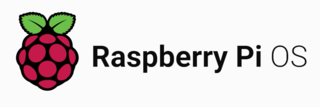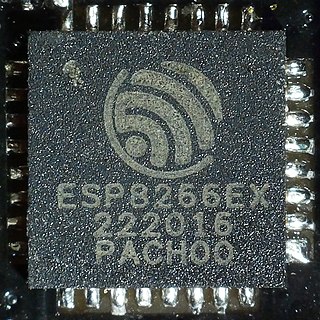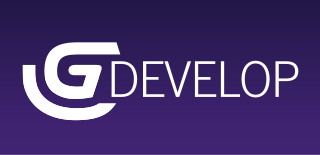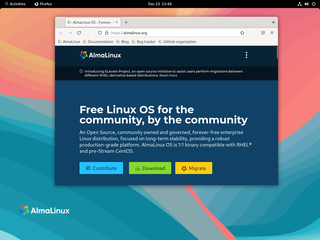
Syllable Desktop is a discontinued free and open-source lightweight hobbyist operating system for Pentium and compatible processors. Its purpose was to create an easy-to-use desktop operating system for the home and small office user. It was forked and expanded AtheOS after the developer of AtheOS moved on to other projects in July 2002.
This article compares browser engines, especially actively-developed ones.

NetSurf is an open-source web browser which uses its own layout engine. Its design goal is to be lightweight and portable. NetSurf provides features including tabbed browsing, bookmarks and page thumbnailing.

Chromium is a free and open-source web browser project, primarily developed and maintained by Google. It is a widely-used codebase, providing the vast majority of code for Google Chrome and many other browsers, including Microsoft Edge, Samsung Internet, and Opera. The code is also used by several app frameworks.

Arora is a discontinued free and open-source web browser developed by Benjamin C. Meyer. It was available for Linux, Mac OS X, Windows, FreeBSD, OS/2, Haiku, Genode, and any other operating system supported by the Qt toolkit. The browser's features included tabbed browsing, bookmarks, browsing history, smart location bar, OpenSearch, session management, privacy mode, a download manager, WebInspector, and AdBlock.

Homebrew is a free and open-source software package management system that simplifies the installation of software on Apple's operating system, macOS, as well as Linux. The name is intended to suggest the idea of building software on the Mac depending on the user's taste. Originally written by Max Howell, the package manager has gained popularity in the Ruby on Rails community and earned praise for its extensibility. Homebrew has been recommended for its ease of use as well as its integration into the command-line interface. Homebrew is a member of the Open Source Collective, and is run entirely by unpaid volunteers.
Dart is a programming language designed by Lars Bak and Kasper Lund and developed by Google. It can be used to develop web and mobile apps as well as server and desktop applications.
Emscripten is an LLVM/Clang-based compiler that compiles C and C++ source code to WebAssembly, primarily for execution in web browsers.

Raspberry Pi OS is a Unix-like operating system based on the Debian GNU/Linux distribution for the Raspberry Pi family of compact single-board computers. First developed independently in 2012, it has been produced as the primary operating system for these boards since 2013, distributed by the Raspberry Pi Foundation.

WebAssembly defines a portable binary-code format and a corresponding text format for executable programs as well as software interfaces for facilitating interactions between such programs and their host environment.

The ESP8266 is a low-cost Wi-Fi microcontroller, with built-in TCP/IP networking software, and microcontroller capability, produced by Espressif Systems in Shanghai, China.

The KDE Gear is a set of applications and supporting libraries that are developed by the KDE community, primarily used on Linux-based operating systems but mostly multiplatform, and released on a common release schedule.

Cub Linux was a computer operating system designed to mimic the desktop appearance and functionality of ChromeOS. It was based on Ubuntu Linux LTS 14.04 "Trusty Tahr". It used Openbox as the window manager and tools taken from LXDE, Gnome, XFCE as well as a number of other utilities. It was a cloud-centric operating system that was heavily focused on the Chromium Browser. Cub Linux's tagline was "Cub = Chromium + Ubuntu".

GDevelop is a 2D and 3D cross-platform, free and open-source game engine, which mainly focuses on creating PC and mobile games, as well as HTML5 games playable in the browser. Created by Florian Rival, a software engineer at Google, GDevelop is mainly aimed at non-programmers and game developers of all skillsets, employing event based visual programming similar to engines like Construct, Stencyl, and Tynker.
ungoogled-chromium is a free and open-source variant of the Chromium web browser that removes all Google-specific web services. It achieves this with a series of patches applied to the Chromium codebase during the compilation process. The result is functionally similar to regular Chromium.

AlmaLinux is a free and open source Linux distribution, developed by the AlmaLinux OS Foundation, a 501(c) organization, to provide a community-supported, production-grade enterprise operating system that is binary-compatible with Red Hat Enterprise Linux (RHEL). The name of the distribution comes from the word "alma", meaning "soul" in Spanish and other Latin languages. It was chosen to be a homage to the Linux community.

OpenAtom OpenHarmony, or abbreviated as OpenHarmony (OHOS), is a family of open-source distributed operating systems based on HarmonyOS derived from LiteOS, donated the L0-L2 branch source code by Huawei to the OpenAtom Foundation. Similar to HarmonyOS, the open-source distributed operating system is designed with a layered architecture, which consists of four layers from the bottom to the top, i.e., the kernel layer, system service layer, framework layer, and application layer. It is also an extensive collection of free software, which can be used as an operating system or can be used in parts with other operating systems via Kernel Abstraction Layer subsystems.















